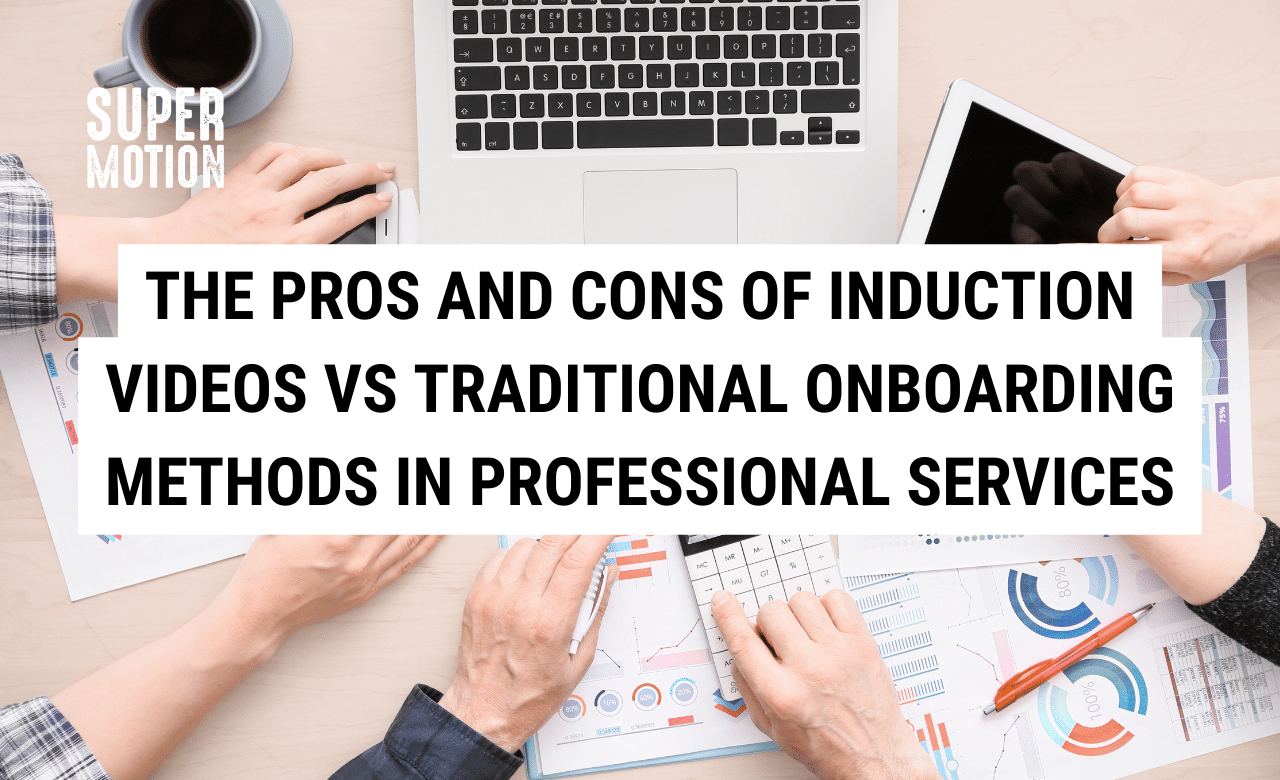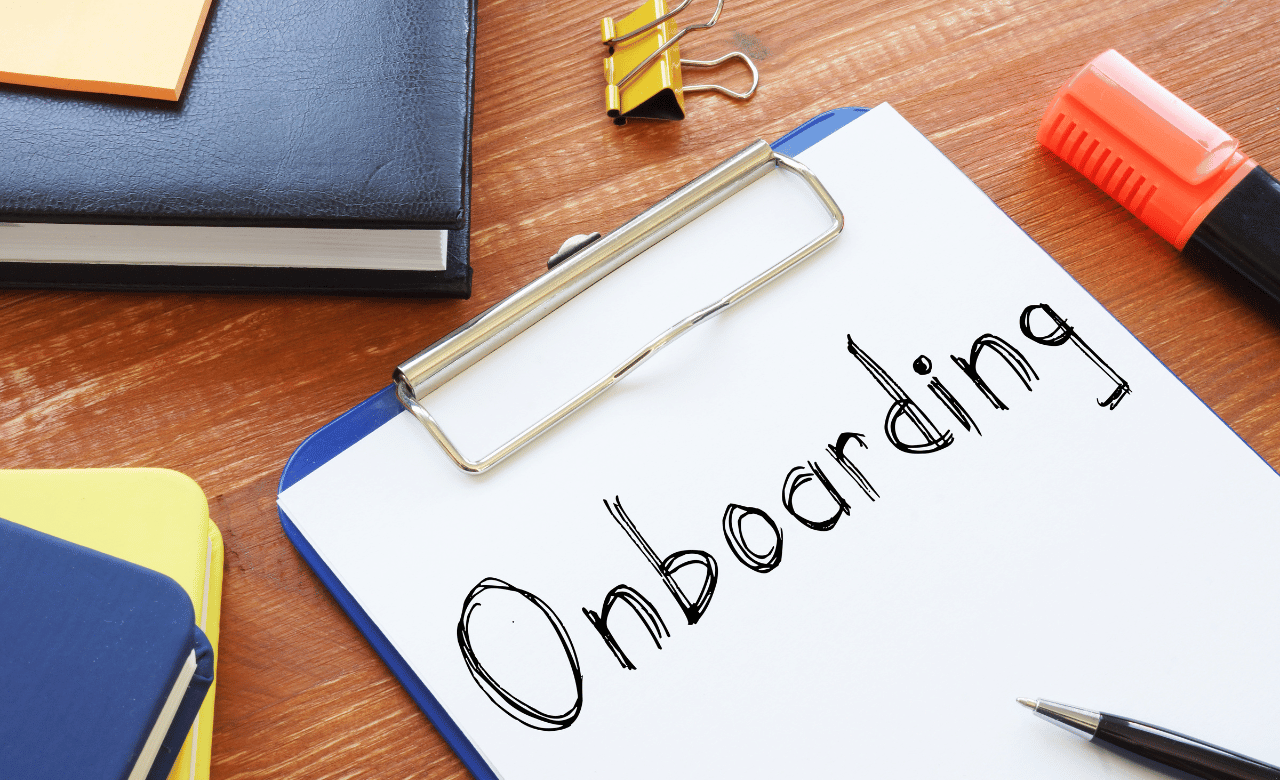The Pros and Cons of Induction Videos vs Traditional Onboarding Methods in Professional Services

Onboarding is a crucial process in any organisation, especially in professional services firms. It is the key opportunity to introduce new hires to the company’s values and culture, provide essential information about the job responsibilities, and establish the foundation for a successful and productive career.
Induction videos have become an increasingly popular onboarding tool. This blog post compares the effectiveness of induction videos with traditional onboarding methods in the professional services industry, delves into the pros and cons of each approach, and provides practical implementation insights.
Overview of Traditional and Video Induction Methods
Traditional onboarding involves a personalised approach, where new hires physically interact with their colleagues, supervisors, and other key stakeholders. This approach includes live presentations, handbooks, one-on-one meetings, and group discussions.
On the other hand, induction videos use multimedia technology tools such as videos, audio recordings, animations, and interactive quizzes. These videos are either pre-recorded or live-streamed, and can be watched at the pace of the new hires.
Onboarding’s Role in Professional Services
The Professional Services industry thrives on its human capital, where client experiences solely rest upon the quality of the workforce. Onboarding is, therefore, a critical step in ensuring a skilled workforce and fostering employee retention, as well as improving client service delivery. The importance of creating a welcoming and engaging environment through the onboarding process cannot be overemphasised.

Accessibility and Time Flexibility
One significant advantage of induction videos is accessibility. Remote onboarding through videos enables new employees to complete the process without being physically present, allowing them to work from anywhere.
The time flexibility of induction videos also ensures that new hires can complete the process at their own pace in more convenient timeframes. This approach also saves on travel, logistics, and accommodation costs.
Consistent Information Delivery
A major advantage of induction videos is the ability to deliver consistent information that is not affected by human biases or emotions, thus promoting standardisation of specific tasks or job roles. Induction videos ensure that all new hires get the same information and same training, regardless of time zones, geographic locations, or organisational structures.

Reduced Personal Interaction
Perhaps the most significant drawback of induction videos is the lack of personal interaction, which is crucial in establishing positive relationships with colleagues, management, and other stakeholders. Human interaction enables new hires to ask questions and seek clarifications, and to feel a sense of belonging to the team. Induction videos limit this opportunity. Furthermore, in terms of compliance and regulations, it may become difficult to ensure that each new employee has completed and understood all the necessary policies and procedures.

Conclusion
Overall, onboarding is crucial in the Professional Services industry, and the effectiveness of induction videos vs. traditional onboarding methods has become a critical consideration for organisations.
A hybrid onboarding model that combines the best of traditional and video-based methods offers significant potential for improving employee satisfaction and retention, and client service delivery.
By blending technology with personal touch, onboarding can be custom-made to meet the specific needs of each employee, promoting a sense of ownership and belonging. Organisations must consider the pros and cons of both methods, leverage technology, and tailor their onboarding processes to their specific requirements. Doing so assures an engaged and productive workforce from day one.
If you’d like to explore how induction videos could compliment your existing onboarding process, book a strategy call or get in touch on 01225 970242.
